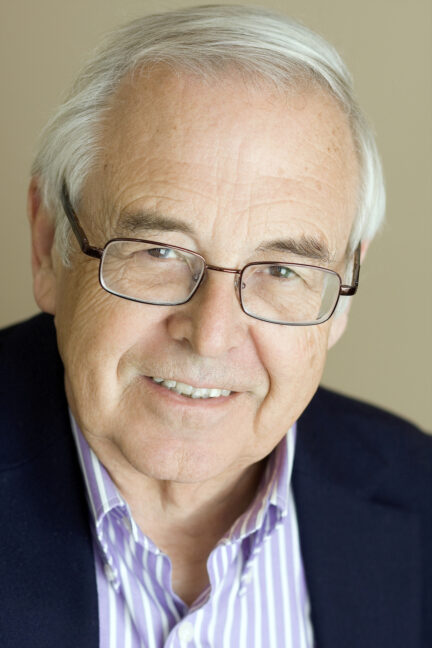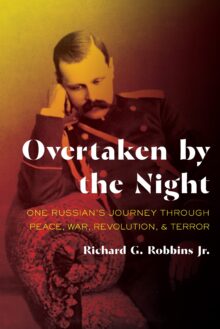
Richard Robbins
Richard G. Robbins, Jr. is professor emeritus of history at the University of New Mexico. He is the author of Famine in Russia, 1891-1892: The Imperial Government Responds to a Crisis and The Tsar’s Viceroys: Russian Provincial Governors in the Last Years of the Empire.
Overtaken by the Night
One Russian's Journey through Peace, War, Revolution, and Terror
Vladimir Fedorovich Dzhunkovsky was a witness to Russia’s unfolding tragedy—from Tsar Alexander II’s Great Reforms, through world war, revolution, the rise of a new regime, and finally, his country’s descent into terror under Stalin. But Dzhunkovsky was not just a passive observer—he was an active participant in his troubled and turbulent times, often struggling against the tide. In the centennial of the Russian revolution, his story takes on special significance.
Highly readable, Overtaken by the Night captivates on many levels. It is a gripping biography of a man of many faces, a behind-the-curtain look at the inner workings of Russian politics at its highest levels, and also an engrossing account of ordinary Russians engulfed by swiftly moving political and social currents.
Dzhunkovsky served as a confidant in the tsar’s imperial court,and as governor in Moscow province during and after the 1905 revolution. In 1913, he became the empire’s security chief, determined to reform the practices of the dreaded tsarist political police, the Okhrana. Dismissed from office for daring to investigate and warn Tsar Nicholas about Rasputin, his path led him into combat on the battlefields of the First World War. A natural leader of men, he held his units together even as revolution spilled into the trenches. Arrested as a counterrevolutionary in 1918 and imprisoned until 1921, Dzhunkovsky avoided execution thanks to an outpouring of public support and his reputation for treating revolutionaries with fairness and dignity. Although later he consulted for the Stalinist secret police, he was tried and executed in 1938 as an enemy of the people.
Based on Dzhunkovsky’s detailed memoirs and extensive archival research, Overtaken by the Night paints a fascinating picture of an important figure. Dzhunkovsky’s incredible life reveals much about a long and crucial period in Russian history. It is a story of Russia in revolution reminiscent of the fictional Doctor Zhivago, but perhaps even more extraordinary for being true.

